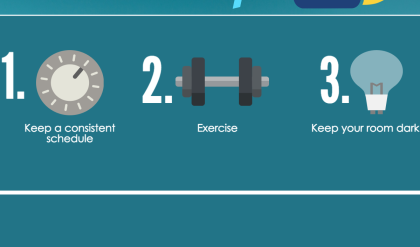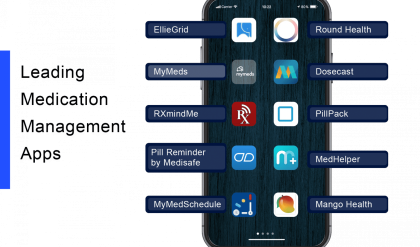
Decoding the Nutrition Labyrinth: Your Guide to Finding the Perfect Personalized Nutritionist
Navigating the world of nutrition can feel like wandering through a dense forest, filled with conflicting advice and misleading claims. Finding a qualified nutritionist who can provide truly personalized guidance is crucial for achieving your health goals, whether it’s weight management, improved energy levels, or managing a specific health condition. This isn’t a one-size-fits-all journey; it requires a discerning eye and a strategic approach.
Beyond the Buzzwords: Defining “Qualified”
The term “nutritionist” lacks legal standardization across many countries. Some individuals use the title without the necessary training or credentials. To ensure you’re working with a professional capable of providing safe and effective advice, look for these qualifications:
- Registered Dietitian (RD) or Registered Dietitian Nutritionist (RDN): These professionals have completed rigorous academic programs accredited by the Accreditation Council for Education in Nutrition and Dietetics (ACEND) and passed a national exam. They are the gold standard in the field.
- Licensed Dietitian/Nutritionist (LDN): Licensing requirements vary by state/province, but generally involve similar educational and examination standards as RD/RDNs.
- Certified Nutrition Specialist (CNS): This certification requires extensive education and a national board exam, focusing on a deeper understanding of nutritional science.
Finding Your Perfect Nutrition Match: A Step-by-Step Guide
-
Define Your Needs: Before you even begin your search, clearly articulate your goals. Are you aiming for weight loss? Do you have specific dietary restrictions or allergies? Are you managing a chronic condition like diabetes or heart disease? Knowing your needs helps you target your search.
-
Tap into Your Network: Start with your primary care physician. They can often provide referrals to reputable nutrition professionals within their network. Friends, family, and colleagues who have had positive experiences with a nutritionist can also offer valuable recommendations.
-
Leverage Online Resources: Websites like the Academy of Nutrition and Dietetics (eatright.org) and the Commission on Dietetic Registration (cdrnet.org) offer search tools to find credentialed professionals in your area. Online directories and review sites can also be helpful, but always verify credentials independently.
-
Scrutinize Online Profiles: Pay close attention to a nutritionist’s website or online profile. Look for a clear statement of their qualifications, areas of expertise, and client testimonials. Avoid professionals who make unsubstantiated claims or promote miracle cures.
-
Schedule Consultations (and Ask Questions!): Don’t hesitate to schedule brief consultations with several nutritionists before committing to a longer-term relationship. This allows you to assess their communication style, approach, and whether you feel comfortable and understood. Prepare a list of thoughtful questions:
| Question Category | Example Questions |
|---|---|
| Credentials & Experience | “What are your credentials and years of experience?” |
| Approach & Philosophy | “What is your approach to nutrition counseling?” |
| Dietary Restrictions | “Can you accommodate my [specific dietary restriction]?” |
| Fees & Insurance | “What are your fees and do you accept my insurance?” |
| Client Success | “Can you share examples of your clients’ success stories?” |
- Trust Your Gut: Choosing a nutritionist is a personal decision. The best professional for you will be someone with whom you feel comfortable, confident, and motivated to work. Don’t settle for anything less.
Red Flags to Watch Out For:
- Unsubstantiated claims: Be wary of professionals promising rapid weight loss or miracle cures.
- Rigid dietary restrictions: A healthy diet is balanced and sustainable. Avoid nutritionists who promote extreme elimination diets.
- Lack of transparency: A qualified nutritionist will be open about their qualifications and approach.
- High-pressure sales tactics: A genuine professional will prioritize your needs and goals, not their sales targets.
The Personalized Nutrition Path: A Journey Worth Taking
Finding the right nutritionist is an investment in your long-term health and well-being. By following these steps and carefully considering your options, you can confidently embark on a personalized nutrition journey that empowers you to achieve your health goals and live a healthier, happier life. Remember, this is a partnership; a successful outcome relies on both your commitment and your nutritionist’s expertise.

Additional Information
Delving Deeper: Finding a Qualified Nutritionist for Personalized Guidance
Finding a qualified nutritionist is crucial for achieving personalized dietary success, yet the process can be fraught with complexities. While a basic guide might advise searching online directories, this deeper analysis explores the nuances of selecting the right practitioner, emphasizing critical evaluation and informed decision-making.
Beyond Credentials: Unpacking Qualification:
Simple possession of a credential doesn’t guarantee expertise. While Registered Dietitians (RDs) or Registered Dietitian Nutritionists (RDNs) in the US, and equivalent registrations in other countries (e.g., Registered Nutritionists in the UK), hold the gold standard, several factors further refine qualification:
- Specialization: Nutrition is broad. A general RD might not be ideal for specific needs like sports nutrition, pediatric nutrition, or managing chronic conditions like diabetes. Seeking a specialist ensures expertise tailored to individual circumstances. For example, someone with celiac disease needs a nutritionist experienced in managing gluten-free diets, not just someone with general nutrition knowledge.
- Continuing Education: The field of nutrition is constantly evolving. A practitioner’s commitment to continuing professional development (CPD) indicates ongoing learning and adaptation to new research and best practices. Look for evidence of recent conferences attended, publications, or certifications in specialized areas.
- Evidence-Based Practice: Avoid practitioners promoting fad diets or unsubstantiated claims. A qualified nutritionist bases recommendations on peer-reviewed scientific evidence and adapts them to individual needs and preferences, acknowledging limitations of the available evidence where necessary. Asking about the rationale behind specific recommendations is crucial.
Analyzing Practitioner Approaches:
Different nutritionists employ various approaches. Understanding these helps in aligning with your personal preferences and needs:
- Medical Nutrition Therapy (MNT): This approach focuses on treating medical conditions through dietary interventions. It’s ideal for managing chronic diseases like diabetes, heart disease, or kidney disease. MNT requires a thorough understanding of medical conditions and their nutritional implications.
- Intuitive Eating: This approach emphasizes listening to your body’s hunger and fullness cues, promoting a healthier relationship with food and rejecting restrictive dieting. This may be suitable for individuals struggling with disordered eating.
- Functional Nutrition: This approach considers the interplay between nutrition and overall health, addressing underlying factors contributing to health issues. It might involve testing for nutrient deficiencies or gut microbiome analysis.
Navigating the Information Landscape:
The abundance of online information presents both opportunities and challenges. Critical evaluation of online resources is paramount:
- Website Credibility: A professional website with clear credentials, evidence-based information, and a focus on client care reflects credibility. Conversely, websites filled with testimonials alone, exaggerated claims, or a lack of transparency should raise red flags.
- Social Media Scrutiny: While social media can offer insights into a practitioner’s personality and approach, it shouldn’t replace thorough background checks. Overly promotional content or a lack of engagement with critical questions should warrant caution.
Case Study Example:
Consider a patient with type 2 diabetes struggling with weight management. A general nutritionist might offer generic dietary advice. However, an RD specializing in diabetes would develop a personalized meal plan considering medication interactions, blood glucose targets, and individual preferences. This targeted approach is more likely to yield better outcomes.
Statistical Considerations:
While precise statistics on nutritionist efficacy are difficult to obtain due to the personalized nature of interventions, studies consistently demonstrate that working with a registered dietitian improves outcomes for various health conditions, including weight management, blood glucose control, and cardiovascular health. These studies highlight the value of professional guidance compared to self-management or reliance on unverified online sources.
Conclusion:
Choosing a qualified nutritionist requires careful consideration beyond basic credentials. Understanding specialization, approaches, and critically evaluating information sources are essential. By investing time and effort in this process, individuals can significantly increase their chances of achieving sustainable, health-promoting dietary changes. Remember, the relationship with your nutritionist should be built on trust, mutual understanding, and a shared commitment to your well-being.






